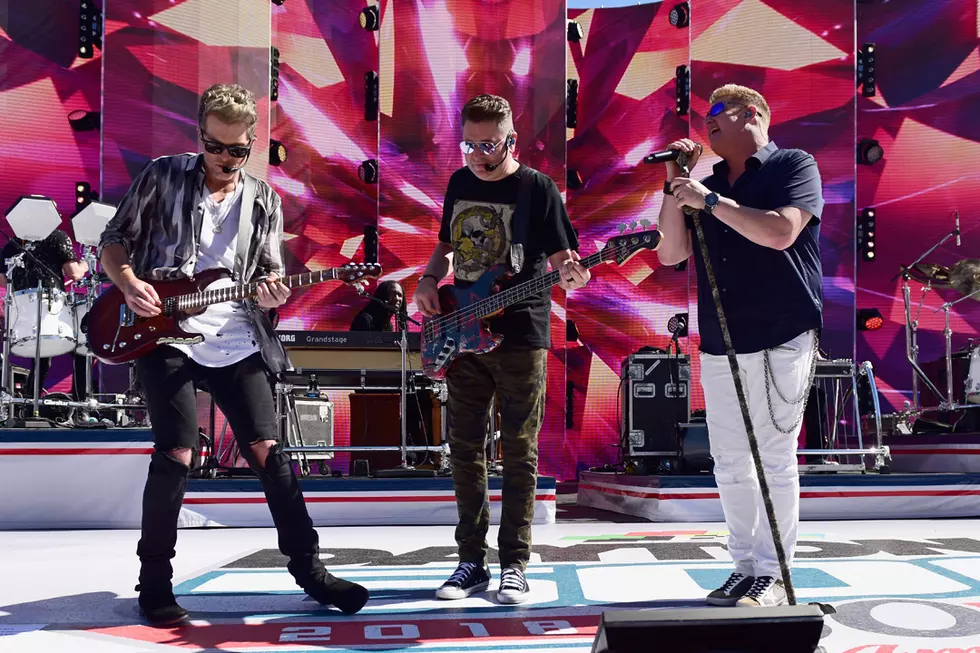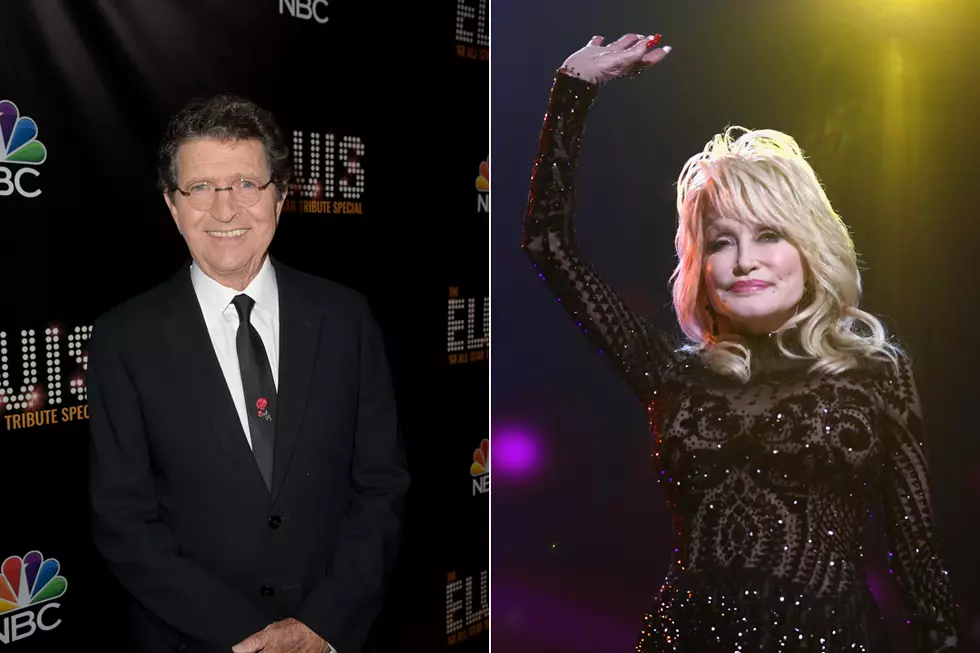
Rascal Flatts’ First Impressions of Each Other? Astonishment!
In the late 1990s, Jay DeMarcus, Gary LeVox and Joe Don Rooney were Nashville newcomers, in one another's professional orbits but not yet together as Rascal Flatts. But when they finally got onstage together, it was clear they had a good thing going.
DeMarcus was the link between LeVox, his cousin, and Rooney, with whom he was playing in "Single White Female" singer Chely Wright's band. DeMarcus and LeVox had a six-hour, late-night gig at the now-closed Fiddle & Steel Guitar Bar in Printers Alley, and DeMarcus asked Rooney to play with them because their usual guitar player couldn't be there — only, he didn't tell LeVox about the change in advance.
"Jay and been telling me about Joe Don, and he'd been telling Jeo Don about me ... I knew that he was a great guitar player and a great singer and all that, but I didn't really know that Joe Don was filling in that night," LeVox shared during a recent media event. "So, when I went in there, I was just like, 'Who is that?'"
LeVox was just hoping Rooney could hang, he admits. Then, they started their first song: a cover of Shenandoah's "Church on Cumberland Road."
"We hit that first chorus, and I just remember, like, goosebumps," LeVox continues. "I was like, 'I don't know what the crap that is, but I want some more of it' ... It was just a match made in Heaven."
It may have been LeVox's first time seeing Rooney play, but it wasn't Rooney's first time watching LeVox do his thing. He'd been catching DeMarcus and LeVox's gigs around town from time to time and was "overwhelmed" by their talent.
"I just remember hearing Gary for the first time. He was one of the first singers I heard in Nashville," Rooney recounts, "and I just remember going, 'Holy crap, this is the bar?!'"
DeMarcus was the first of the Flatts to arrive in Nashville, in the early '90s, as part of a Christian duo with his college roommate, Neal Coomer, and it was his actions that sowed the earliest seeds for what would become Rascal Flatts. According to Rooney, DeMarcus was the one to suggest to Wright that she hire Rooney in the first place.
DeMarcus was also the one pestering LeVox to move to Nashville — after he learned how well he could sing, that is. When his mom first call him to discuss LeVox's potential, DeMarcus confesses he was worried; the future bandmates were close growing up, and their mothers were close, too, and DeMarcus didn't want to have to crush his cousin's dreams.
"My first thought was, 'Oh no, you don't wanna tell a family member ... 'Hey, you're really not that great,'" DeMarcus says, "especially when they're close to you."
Fortunately, when LeVox visited him in Nashville, DeMarcus had to do no such thing.
"I remember sitting down a the piano and just kind of plucking some things out, and then he opens his mouth, and as you might imagine, it just stopped me dead in my tracks," DeMarcus remembers. "I couldn't believe what i was hearing ... You just don't hear come out of normal people's mouths.
"From that moment on," he adds, "Gary would probably tell you that I bugged the ever-loving crap out of him [to move to Nashville."
Rascal Flatts debuted at country radio in 2000 and built an award-winning career on their pitch-perfect harmonies and penchant for pop-leaning melodies. As one of the genre's leading acts of the early new millenium, their sound helped shape the future of country music.
At the start of 2020, Rascal Flatts announced a farewell tour and their intentions to disband at the end of the year. The novel coronavirus pandemic put those tour plans on ice, but on Friday (Oct. 2), they released a greatest hits album featuring 13 of their No. 1 songs and seven other fan favorites.
What's the Best Country Song of the 2000s? Here Are Our Faves:
More From KICK AM, Classic Country


![Cody Johnson Enlists Reba McEntire, Fellow Former Rodeo Rider, for Duet Version of Latest Single [Listen]](http://townsquare.media/site/204/files/2020/10/cody-johnson-reba.jpg?w=980&q=75)







